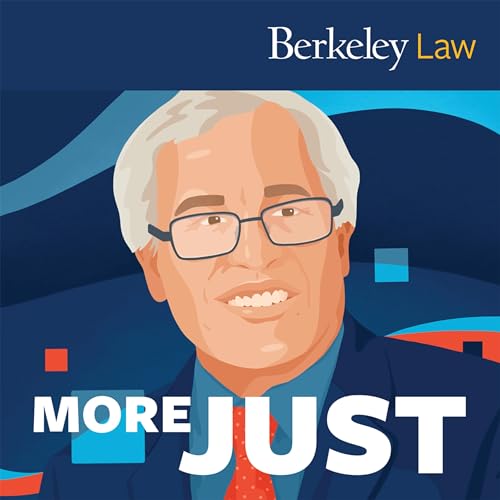U.S. Supreme Court Justice William O. Douglas built a legacy of strong progressive and libertarian views. Nominated by President Franklin Roosevelt, he was confirmed in 1939 at age 40 and served until 1975 — the longest tenure of any associate justice.
Law students get to know Douglas well because he turns up in many of the most famous cases of the 20th century. He wrote for the majority in blockbuster cases such as Griswold v. Connecticut, which established the right to birth control, and Brady v. Maryland, which established that the prosecution must turn evidence that might exonerate a defendant over to the defense team. He also penned withering dissents, particularly in a string of First Amendment cases, including United States v. O’Brien, Terry v. Ohio, and Brandenburg v. Ohio.
During his storied tenure, Douglas was also a fierce advocate for the environment. In this episode, Berkeley Law Dean Chemerinsky talks with Judge M. Margaret McKeown, who’s just published a fascinating book, Citizen Justice: The Environmental Legacy of William O. Douglas — Public Advocate and Conservation Champion. She explores Douglas’ activism and the ethical questions it raised that still haven’t been fully resolved.
Judge McKeown was appointed to the U.S. Court of Appeals for the Ninth Circuit by President Bill Clinton and confirmed by the Senate in 1998. She recently took senior status. She is a member of the American Academy of Arts and Sciences, an affiliated scholar at the Center for the American West at Stanford University, and jurist-in-residence at the University of San Diego School of Law.
AboutMore Just from Berkeley Law is a podcast about how law schools can and must play a role in solving society’s most difficult problems.
The rule of law — and the role of the law — has never been more important. In these difficult times, law schools can, and must, play an active role in finding solutions. But how? Each episode of More Just starts with a problem, then explores potential solutions, featuring Dean Erwin Chemerinsky as well as other deans, professors, students, and advocates, about how they’re making law schools matter.
Have a question about teaching or studying law, or a topic you’d like Dean Chemerinsky to explore? Email us at morejust@berkeley.edu and tell us what’s on your mind.
For a transcript, please visit the episode page on the Berkeley Law podcast hub.
Hosted on Acast. See acast.com/privacy for more information.
 Mar 12 202459 mins
Mar 12 202459 mins Feb 15 202459 mins
Feb 15 202459 mins Oct 3 202342 mins
Oct 3 202342 mins 44 mins
44 mins 45 mins
45 mins